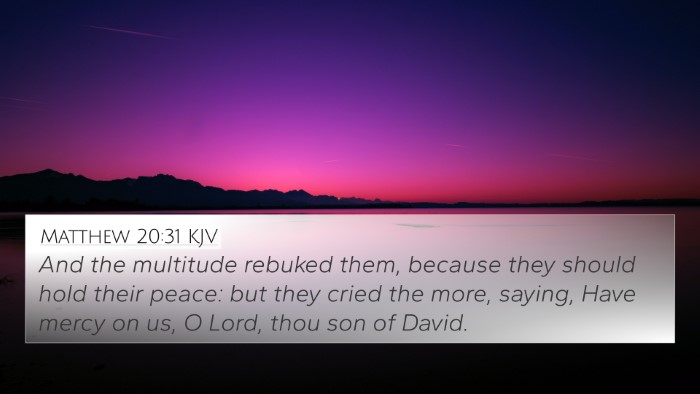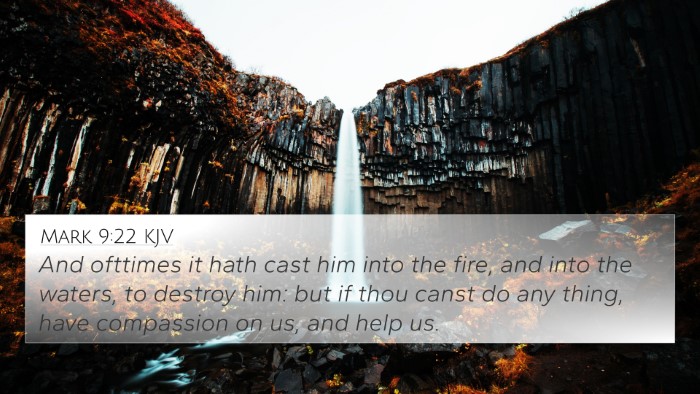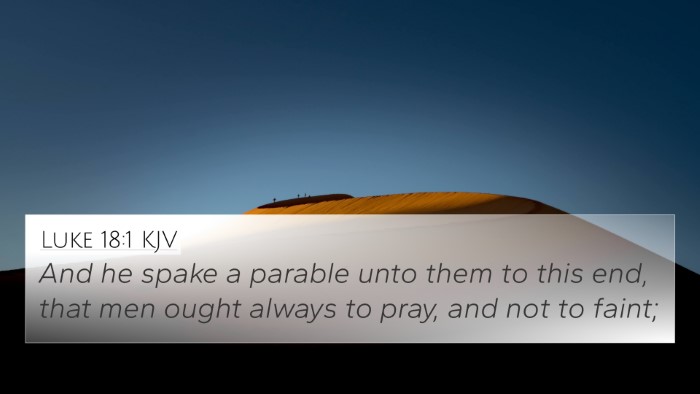Understanding Matthew 15:25
Matthew 15:25 states, "But she came and knelt before him, saying, 'Lord, help me.'" This verse depicts a profound moment of desperation and recognition of Christ's power, highlighting the themes of faith and humility. Below is a summary of insights from various public domain commentaries that delve into the meaning of this verse.
Verse Context and Significance
This narrative takes place in the context of Jesus' ministry in Tyre and Sidon, where He encounters a Canaanite woman. Her plea for mercy illustrates the intersection of Jewish and Gentile territories, underscoring the universal reach of Christ's compassion.
Key Themes
- Desperation: The woman's act of kneeling signifies her urgent need for help.
- Faith: By addressing Jesus as "Lord," she acknowledges His authority and divinity.
- Inclusivity: This encounter demonstrates Jesus' openness to all who seek Him, regardless of their background.
Commentary Insights
Matthew Henry: Henry emphasizes the woman's humility and unwavering faith. Her recognition of Jesus as Lord showcases her understanding of His divine power. She does not let her social status deter her but approaches Jesus with confidence that He can provide help. This serves as a lesson in persistence and faithfulness in prayer.
Albert Barnes: Barnes notes that the woman’s approach is marked by a profound sense of need. He interprets her kneeling as an expression of total submission and reverence. This act reflects a broader theological understanding that all who come to God in faith will find grace, regardless of their original status or ethnicity.
Adam Clarke: Clarke delves into the accentuation on the title "Lord." He explains that this addresses Christ as both a divine figure and a compassionate Savior. His commentary highlights the importance of approaching Christ with a sincere heart and the recognition of one's need for His mercy and grace.
Bible Cross-References
This verse can be linked to several other Bible passages that share similar themes of faith, desperation, and the call to Jesus Christ. Here are some notable references:
- Matthew 7:7: "Ask, and it will be given to you; seek, and you will find; knock, and it will be opened to you." - This emphasizes the importance of persistent prayer.
- Mark 7:25-30: A similar account where a Syrophoenician woman seeks healing for her daughter demonstrates the same themes of faith and desperation.
- Luke 18:38-39: The blind man calls out to Jesus for help, exemplifying the need for faith and acknowledgment of Christ's authority.
- John 4:24: "God is spirit, and those who worship Him must worship in spirit and truth." - This speaks to the essence of true worship and reliance on God.
- Hebrews 4:16: "Let us then with confidence draw near to the throne of grace, that we may receive mercy and find grace to help in time of need." - This reinforces the idea of approaching God boldly.
- James 1:5: "If any of you lacks wisdom, let him ask of God, who gives to all liberally and without reproach." - Another encouragement to ask God for help.
- Isaiah 55:6: "Seek the Lord while He may be found; call upon Him while He is near." - A call to seek God's presence and help.
Thematic Connections
This verse and its surrounding passages help illustrate the broader narratives of faith throughout the Bible. The woman's plea to Jesus can be connected to a larger theme of mercy and healing that recurs in scripture. Additionally, it showcases the importance of intercession and the compassion of Christ towards those in need.
Inter-Biblical Dialogue
The connections between Matthew 15:25 and other scriptures offer rich opportunities for deeper study. By examining these links, one can gain insights into how faith, desperation, and divine mercy weave through the biblical narrative. This verse serves as a reminder of the importance of seeking Jesus in times of trouble and highlights the transformative power of faith.
Conclusion
Matthew 15:25 presents a vital lesson in the necessity of faith, humility, and perseverance in seeking God's help. The Canaanite woman's example encourages believers to approach Christ boldly, regardless of their backgrounds, because His mercy is available to all. Through cross-referencing and comparative analysis, we can appreciate the depth of this encounter and its implications for our spiritual journeys.











